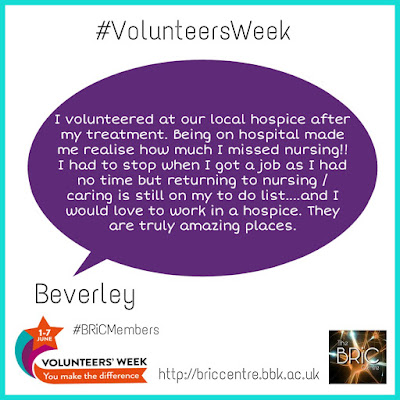In this week's discussion, we looked at our self-esteem and asked ourselves how it had changed after our diagnosis with breast cancer
Self-esteem is commonly seen as being about self-perception. And self-perception at least partly depends upon how others see us, how we fit in, and how comfortable we feel in our intimate and social relationships.
A diagnosis of primary and secondary breast cancer can shatter our self-esteem. We can feel physically disfigured by harsh treatments like surgery, chemotherapy and radiotherapy and we are battered by the emotional storm of cancer.
As we know, 'chemo-brain effects' and our problems with cognitive skills can last for many years. Yet we all know how important it is to be cognitively able in social, personal and work settings. Slips in memory and lapses in concentration and attention seriously undermine our confidence.
We are changed by breast cancer and it is natural to compare who we are now to who we were before we were diagnosed. We can sometimes be upset because we are not the same; the changes were enforced, not chosen. Trying to come to terms with the new ‘normal’ is hard and takes effort. When we have problems identifying with ourselves, our self-esteem is affected, we are trying to make sense of who we are.
Social isolation can follow because we find it hard to communicate, we find people don’t really ‘get it.' Some of our relationships break, others are supportive, but can be stressful. Our partners have to come to term with our changing self-esteem.
One of the biggest effects of breast cancer is on our intimate relationships. Menopausal symptoms can lead to difficulty in being physically and emotionally intimate.
Is it possible to reverse the effects of breast cancer on self-esteem?
We were not sure.The answer is not easy. Do the coping styles we used before our diagnosis help us? Or are we too tired, too fatigued, in pain, and too much in fear of cancer coming back or progressing? We can become resilient after trauma, but we do not easily find the resources - we are running on empty.
Our discussion, which included women with primary and secondary breast cancer, highlighted the myriad and unique ways we lose and find our self-esteem. Some of us felt we had never had self-esteem, or had lost it completely as a result of breast cancer. For others, the impact of weight gain and surgery had profoundly impacted on our sense of womanhood and our ability to be sexually intimate. Some of us described how we had found self-esteem in other areas of our lives, like work, or through new interests and outlets. Others described discovering self-esteem through changed values, for example we no longer cared what others thought because we were dealing with secondary breast cancer, and this knowledge had freed us (as well as terrified us). For a few, the crisis of breast cancer had led to a complete transformation of our 'selves', or, the discovery of a new appreciation of who we were - in all our vitality.
In terms of research, Naz explained that one of the biggest limitations in breast cancer research is the lack of prospective studies: those that can compare factors like self-esteem before and after a diagnosis of breast cancer. Most research is retrospective - it looks into the past through the eyes of the present, and this brings with it a huge element of bias.
Self-esteem after a diagnosis of breast cancer, we learned, becomes about how we can learn to nourish our battered bodies and our minds, how we hug and love ourselves, how we find beauty and strength in our flaws. Self-esteem doesn’t define us, we do. And we are amazing.
https://www.facebook.com/resilienceinbreastcancer/















